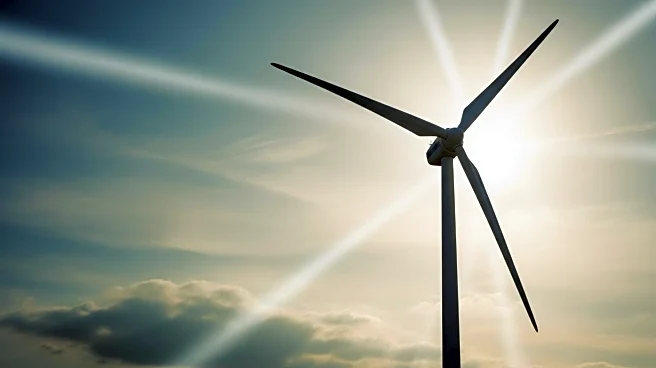What's Happening?
Rochester Gas & Electric (RG&E) is proposing a significant increase in customer rates, with public hearings scheduled for September 30 at Rochester City Hall. The proposed rate hike includes a $220 million increase in electric delivery revenue and a $72.9 million increase in natural gas delivery revenue. This would result in monthly bill increases of $33.01 for electricity and $18.87 for gas for customers using 600 kilowatt hours of electricity and 83 therms of gas. RG&E aims to raise its return on equity from 9.2% to 10%, which would represent a $16.2 million increase, intended to attract capital for system maintenance without overcharging customers. The company states the rate increase is necessary to rebuild an aging grid and expand capacity to meet service demands. However, climate groups express concerns that the proposal contradicts New York's climate law, which calls for rapid decommissioning of gas infrastructure.
Why It's Important?
The proposed rate increase by RG&E is significant as it impacts both residential and business customers in the region. The increase in utility costs could affect household budgets and business operations, potentially leading to higher operational costs. Additionally, the proposal has sparked debate among climate advocates who argue that continued investment in gas infrastructure is contrary to state climate goals. This situation highlights the tension between maintaining reliable energy infrastructure and transitioning to more sustainable energy sources. The outcome of the public hearings could influence future energy policy and investment decisions in New York.
What's Next?
Public hearings will provide a platform for residents and stakeholders to express their opinions on the proposed rate increases. The feedback from these hearings could influence the decision-making process of the state Public Service Commission, which oversees utility rates. Climate advocates are expected to push for more investment in renewable energy and battery storage, rather than gas infrastructure. The hearings may also lead to discussions on how utilities can better align their operations with state climate goals, potentially affecting future rate proposals and infrastructure investments.
Beyond the Headlines
The proposed rate increase by RG&E raises broader questions about the balance between infrastructure investment and climate responsibility. As utilities seek returns on investments in gas infrastructure, there is a risk of prolonging reliance on fossil fuels, which could hinder progress towards sustainable energy solutions. This situation underscores the need for strategic planning in energy investments to ensure long-term benefits and compliance with climate objectives. The public hearings serve as a critical juncture for stakeholders to influence the direction of energy policy in the region.










